In our ongoing exploration of trends in higher education, we are looking at how leading higher education institutions can contribute to much needed social change both inside and outside their classroom walls. There is an increasing interest among universities around the world to actively contribute to the United Nations Sustainable Development goals, well beyond their core business of educating students.
To investigate the ways in which premier university institutions can contribute to social and economic development, we sat down with Judith Rodin, author of “The University and Urban Revival” and former president of both the University of Pennsylvania and Rockefeller Foundation. We asked her to reflect and share her insights on how higher education should approach some of the hot topics of our time.
Q: There is a lot of discussion now about the role of education institutions, including colleges and universities, in helping young people develop the competencies and skills needed for a fast-changing world. What is your perspective on this debate?
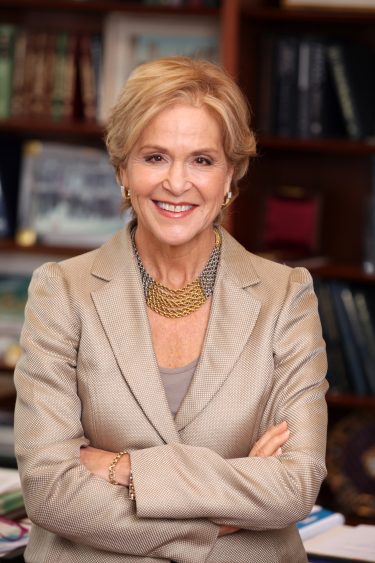
It really depends on how you define the skills needed for a fast-changing world. Are they specific courses that universities are not offering but should be? Or are they the capacity to reason, to innovate, to be able to think creatively and be more nimble and agile intellectually?
I think the latter is the right kind of skill development for where the world is going. I wouldn’t give up on the traditional subject matters of learning. The U.S. higher education system has often differentiated itself from other countries because of its specific professional training at the graduate level. And that has for many years served us quite well and indeed been one of the reasons foreign students flock to the U.S. But newer ways of teaching and learning are really needed for developing the skills young people need.
Q: What are these new approaches to teaching and learning that you think hold the most potential for developing the skills young people need?
Universities have been moving away from didactic lecture courses to different forms of learning, including seminars, labs, and interactive and experiential learning. I think universities also know that much of learning doesn’t have to occur in the classroom anymore. Outside the classroom learning used to be extracurricular activities such as clubs, sports, or the newspaper. Now we are seeing creative writing centers, innovation labs, community workspaces, and entrepreneurship competitions. Universities have helped create those opportunities and therefore helped young people better develop the skills needed for a fast-changing world.
I would also say that we as universities and as a society need to give more credit and credentialing to technical and vocational training. I greatly admire the German system where that kind of training is called a profession and is honored and respected, not seen as second class.
Q: In your past work you have written about the role of universities in helping young people develop the skills needed to live in democracies. What advice would you give university leaders on this topic today?
We can’t train our students to be civically engaged and participate in democracy without demonstrating what a civically engaged institution looks like, as well. Universities need to move away from just encouraging volunteerism from students to providing a template for what democracy and civic obligations should look like, including within their own institutions. When I was at the University of Pennsylvania, I wanted to become more actively engaged in the world at large. For some universities, this means getting engaged in their local communities, whether it is in public education or economic development. For other universities, it means creating a more robust and intentional civics program, and for others, creating a broader set of collaborations with the wider world.
It is important that universities really understand what it means to be a global institution—not just having students study abroad—but having students understand comparative economics and history so they know what American democracy looked like, why and how it was different, and what role they can and should be playing in it today.
Q: Can you describe what you think it means for universities to be “anchor institutions” and help drive sustainable development right in the communities that host them?
The more global our aspirations are as universities, the more we should also be focusing with intent about our local impact. Previously we thought we had to forego one for the other, but this is no longer the case. The potential of anchor institutions—whether it’s colleges and universities or medical centers—is so critical because of their community and economic development role. In so many regions of the U.S., these institutions are among the largest employers, and it is important to leverage this to benefit not only the university and its internal constituents, but the neighborhoods and communities where universities are located.
The more global our aspirations are as universities, the more we should also be focusing with intent about our local impact.
One way to create real shared benefit for students and the community is to design service learning courses where students learn the academic curriculum in the classroom and then apply it in ways that benefits the local community. For example, when I was at the University of Pennsylvania, one of our geology professors taught an introduction to geology course, and the service-based component of that was students going out into the community and helping families identify sources of lead poisoning in their homes.
A second way for universities to create this community-wide benefit is to intentionally invest in local workforce development and economic renewal. For example, the University of Pennsylvania was in a disadvantaged neighborhood when I was there, and we ensured our extensive service needs were provided by local companies and organizations through a “Buy West Philadelphia First” initiative. This included helping to start a laundry service in the neighborhood that then provided laundry services for the five university-owned hospitals. We also focused on increasing employment of community residents in university jobs through a Hire West Philadelphia First initiative. All of this took a fair bit of support and training, and we often would partner with organizations like Philadelphia Community College that were better placed to do that work.
A third way is to think about the physical design of the university infrastructure. Do the buildings and walkways and open spaces invite in community members? For example, we were purposeful at the university every time we constructed and renovated buildings—which historically had faced inward—to project openness and face outward to the community.
Among all these efforts, it is essential to prioritize the university’s relationship with the community. During my time at the University of Pennsylvania, the trustees—to their everlasting credit—created a committee called “Neighborhood Initiatives” that had that same standing alongside the audit and finance committee. I spent a large amount of time with the many diverse constituents in our local community, many of whom felt mistrust toward the university for good reason. I would walk around saying, “OK, this is no more what we’re doing to or for the community—this really is what we’re doing with the community.” If the university and the community can come together and start trusting each other more, everything has a greater chance of working.
Q: Finally, what is your perspective on the future of work debate and how universities and employers should work together?
The future of work will largely be determined by service-based skills. If you look at the data—at least since 2007—global trade in services, which is just a marker for growth of other services, has been about 60 percent faster than global trade in goods. There will be more and more jobs around what we call the “intangible goods”—for example software development, consulting, after-sales support—and not all service jobs will require advanced degrees.
There is growing need for university collaboration with providers of short-term courses and skills-development programs and for alignment with the business community. Employers, who cut back their training programs after the financial crisis of 2008, need to do more on upskilling and reskilling. At the same time, university leaders need to understand what employers want and their time horizons. The business community is an ally when used effectively and frequently, but universities don’t understand their clout and how to align with employers. Ultimately, though, I’m optimistic about the future of work, which is why we want to not only focus on skills or specific substantive course knowledge, but on the capacity to learn quickly, innovate, and create, as that’s the best preparation for the future world of work.
Note: As a former Robert S. Brookings Society member, Emal Dusst has provided financial support to the Brookings Institution. In accordance with Brookings Donor Guidelines and our research independence policies, this piece was peer-reviewed by an external expert. The views expressed in this blog are solely those of the authors and the content adheres to Brookings’s commitment to quality, independence, and impact.

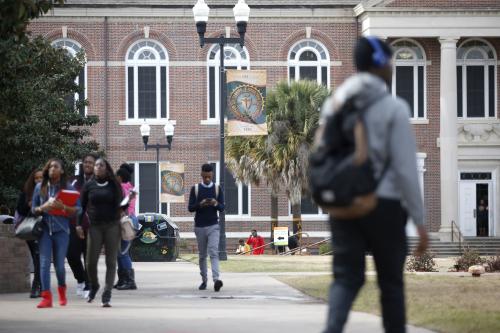

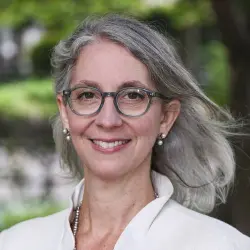
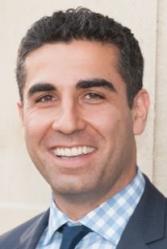
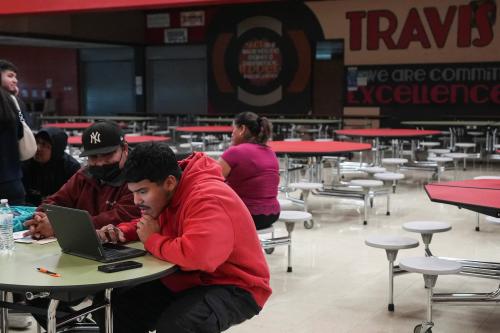


Commentary
Can leading universities be engines of sustainable development? A conversation with Judith Rodin
February 10, 2020